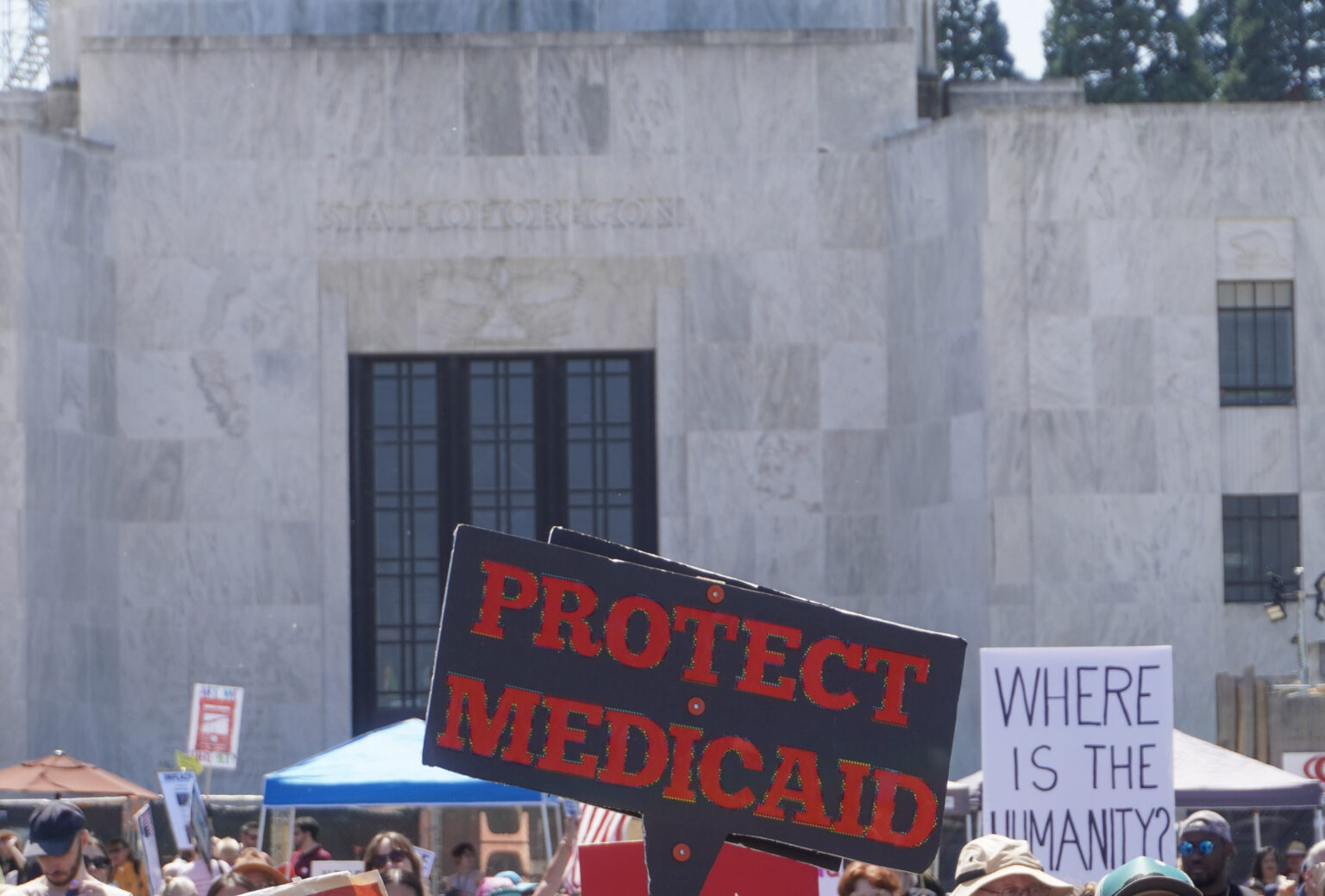Portland’s Bipartisan Cafe, a vision of small-town civil discourse
Published 7:00 am Wednesday, July 26, 2017

- PARIS ACHEN/CAPITAL BUREAU - The GOP restroom at Portland's Bipartisan Cafe
Portland resident Peter Emerson grew up in the small Minnesota town of Osakis where his father was one of the few liberals.
“We were the town liberals, and it was a pretty conservative town,” Emerson said. “My dad was a prominent man, the town doctor. Some people hated him, but everybody met at the same places. They knew they disagreed. They would have arguments, but they were still friends when they were done.”
Trending
When Emerson conceptualized the Bipartisan Cafe more than two decades ago, he envisioned recreating that atmosphere of civil debate and comradery.
“At that time, I was a waiter, then bartender,” Emerson said. “It just was always in my head. I always have restaurant ideas in my head, but they come and go. This one just stayed.”
Emerson married his partner, Hobie Bender, and had children. He worked as a manager at Starbucks for about 10 years, and when he stopped enjoying the work, he decided to pursue his vision.
The Bipartisan Cafe finally materialized in June 2005 in Portland’s Montavilla neighborhood. Bender baked and sold pies at the café, while Emerson perused eBay for political and historical mementos.
The cafe features portraits of every modern president. Emerson is still hunting for the perfect Donald Trump portrait. Political campaign posters, including one of former Oregon Gov. Tom McCall, paper the walls.
“We used to have a Palm Beach County, (Florida) voting machine before we ran out of space. We also had the butterfly ballot,” Emerson said.
Trending
A review by the Palm Beach Post concluded that voter confusion over Palm Beach County’s butterfly ballot caused Democrat Al Gore’s defeat in the 2001 presidential election.
“I am a little bit of an amateur history guy, so if you come in, the things on the wall flow chronologically,” Emerson said.
The southeast wall starts with portraits of Native Americans, then the founding fathers, the Civil War era and then World War I and World War II.
The restroom doors are painted in red and blue, representing the nation’s two main political parties, and are embellished with framed artwork of a donkey and an elephant.
The cafe has become a community center during political season where customers can watch televised political debates, election results and other political events.
Emerson stirred up controversy in January when he declined to televise Trump’s inauguration because of hostile discourse over the election.
“People were upset about that,” he said. “The cafe is bipartisan. You are welcome whatever party you are as long as you are respectful.”
His motto is “just keep it civil.”
“I don’t know in reality how well that works,” he said. “It is kind of hard to live up to this ideal right now.





